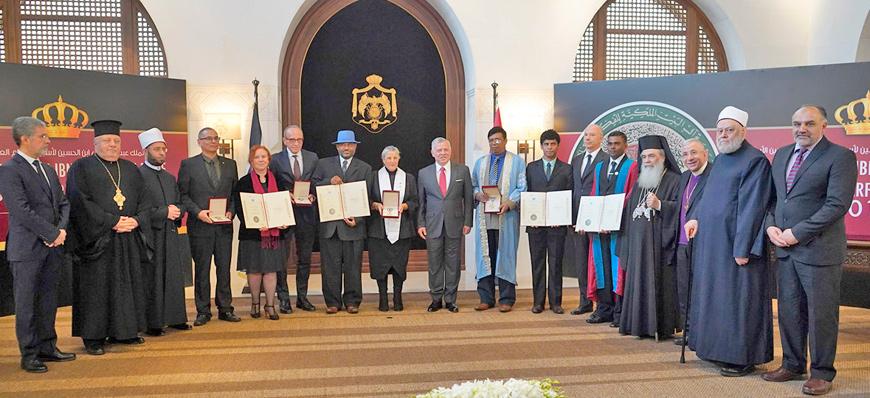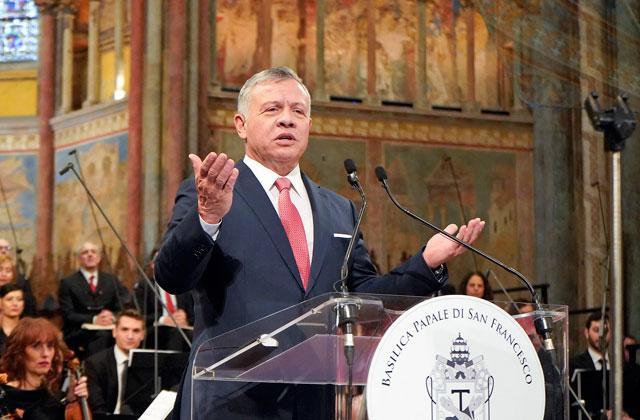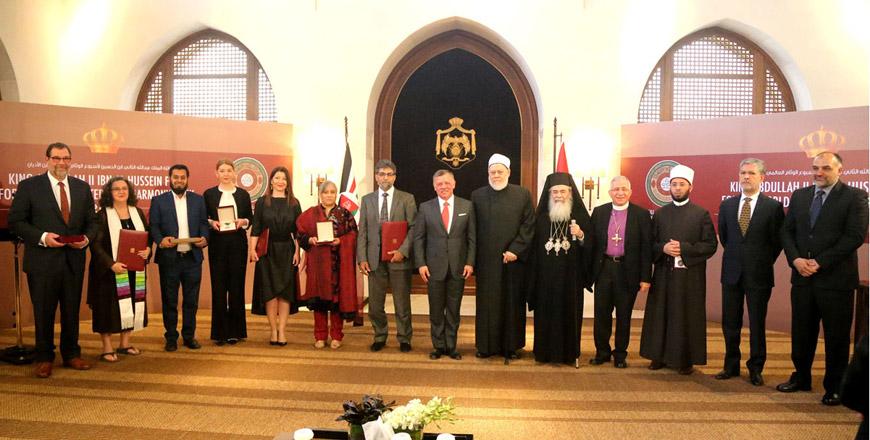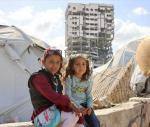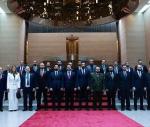You are here
King honours winners of World Interfaith Harmony Week prize
By JT - Apr 24,2018 - Last updated at Apr 24,2018
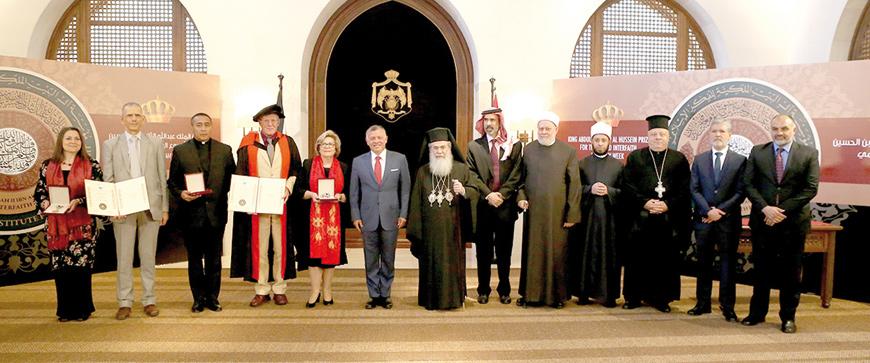
His Majesty King Abdullah poses for a group photo with winners of World Interfaith Harmony Week competition in Amman on Tuesday (Photo courtesy of Royal Court)
AMMAN — His Majesty King Abdullah on Tuesday attended the 2018 King Abdullah II World Interfaith Harmony Week prize ceremony at Al Husseiniya Palace and presented awards to the winners.
Launched by the Royal Aal al-Bayt Institute for Islamic Thought in 2013, the annual prize is awarded to three activities or texts that best promote the values connected to the World Interfaith Harmony Week, which is celebrated in the first week of February and was launched by King Abdullah and unanimously adopted by the UN General Assembly in 2010.
In remarks at the ceremony, HRH Prince Ghazi Bin Muhammad, His Majesty’s chief adviser for religious and cultural affairs and personal envoy, thanked the King for spearheading the World Interfaith Harmony Week initiative.
“This year, those participating in the World Interfaith Harmony Week have once again — by the Grace of God — continued on the upward trend of holistic growth both in quantity and — if I may say so — in quality,” His Royal Highness added.
“The World Interfaith Harmony Week has officially been adopted and celebrated by a number of countries including Indonesia [represented here today by our second place winners], Malaysia, the Philippines and Canada; not to mention 1,200 NGOs and other organisations worldwide,” Prince Ghazi said.
“I would also like to congratulate all three winners, all those who participated in the World Interfaith Harmony Week, and our esteemed judges. All are helping to make the world a slightly better place, or perhaps a slightly less bad place. May God accept and reward their good intentions and efforts,” His Royal Highness added.
The first place prize was awarded to the Interfaith Centre of Melbourne in Australia, for the event “Who Are We in a Changing World?”
The event, inspired by “Love of the Neighbour”, invited seven faith leaders to bring community members with them to meet their “neighbours” who come from diverse faiths, philosophies and cultures.
Reverend Helen Summers, founder and director of the centre, and Deputy Director Nicholas Coleman received the award.
Second place went to the event “Indonesia Celebrates World Interfaith Harmony Week: Commitment of Religious Leaders on National Unity”, organised by Special Envoy of the President of the Republic of Indonesia for Interfaith and Inter-Civilizational Dialogue and Cooperation Din Syamsuddin.
At a celebration marking World Interfaith Harmony Week, 450 interfaith leaders from across Indonesia gathered to discuss national issues and came up with a seven-point declaration on national unity, which was presented to the president.
Muhammad Rifqi Muna and Jacklevyn Frits Manuputty, assistants of the presidential special envoy, received the award.
The third prize went to Interfaith Glasgow for the event “Friendship, Dialogue, Cooperation: Exploring Crucial Elements of Interfaith Harmony”.
The UK-based charity promotes positive engagement between people of different religious traditions in Scotland’s most religiously diverse city.
Interfaith Glasgow Director Rose Margaret Drew and Philip Mendelsohn, the charity’s chair, received the award.
In remarks on behalf of the winners, Reverend Summers, of the Interfaith Centre of Melbourne, said that since His Majesty proposed the World Interfaith Harmony Week in 2010, “many thousands of events have been held around the world bringing people of good will together, acknowledging that Love of God and Love of the Neighbour, or Love of the Good and Love of the Neighbour, is what we share in common and where there are differences, we show respect.”
“New relationships are formed, old misperceptions fall away, new understandings emerge, social action is undertaken and interfaith initiatives can lead to improvements in a government’s multicultural policy,” she noted.
The World Interfaith Harmony Week builds on the 2007 “A Common Word” initiative, which declared the common ground between Islam and Christianity based on the two great Commandments of “Love of God, and Love of the Neighbour”, which lie at the heart of the three monotheistic faiths.
Related Articles
AMMAN — His Majesty King Abdullah on Wednesday attended the 2019 King Abdullah II World Interfaith Harmony Week Prize ceremony at Al Hussein
AMMAN — Since the Accession to the Throne, His Majesty King Abdullah has institutionalised a policy of interfaith dialogue, earning the King
AMMAN — His Majesty King Abdullah on Sunday presented the “King Abdullah II of Jordan Prize for World Interfaith Harmony Week 2017”, accordi


